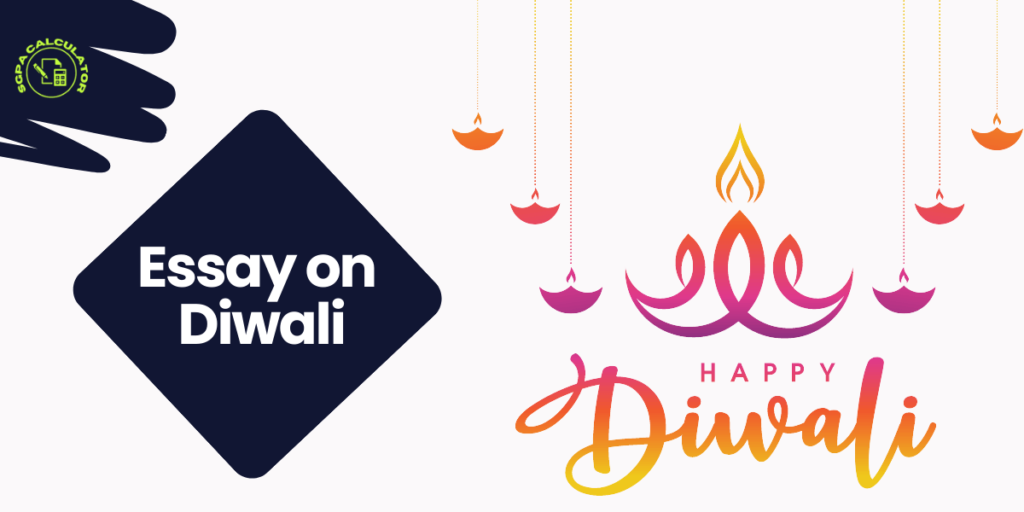One of the most anticipated and extensively observed festivals in India is Diwali, also known as Deepavali. It is deeply rooted in culture and religion and unites people in a symphony of lights, joy, and unity. This essay on diwali explores the many facets of Diwali, including its religious and historical roots, its cultural and social significance, the customs and rituals connected to it, and the environmental issues that have recently come to light.
Origins in history and religion
Hindu mythology serves as the celebration of Diwali’s starting point, and it has numerous legends that add to its significance. The story of Lord Rama’s victory against the demon king Ravana is one of the most well-known ones. According to legend, the city of Ayodhya was lighted by thousands of lamps to commemorate Lord Rama’s return after 14 years of exile and the destruction of Ravana. The custom of lighting lights represents the victory of good over evil, knowledge over ignorance, and light over darkness. The worship of the goddess of riches and prosperity, Lakshmi, is another tradition connected to Diwali. On this day, Lakshmi is said to visit houses that are tidy, well-lit, and warm.
Read Our Essay: Mahatma Gandhi Essay
Social and Cultural Significance
Diwali is a holiday that connects individuals from many origins and overcomes religious distinctions in addition to its religious connotations. Hindus, Jains, Sikhs, and even some Buddhists participate in the celebration, which each sect associates with particular cultural aspects. Family get-togethers during Diwali are occasions for sharing food, presents, and smiles. Diwali is a time for celebrating kindness and developing social ties through the exchange of gifts and sweets. The event is significant economically because it heralds a rise in consumer spending and corporate activity.
Traditions & Rituals
A number of rituals and traditions are used throughout the multi-day Diwali celebrations. The eradication of negativity and the embracing of positive energy are symbolised by the widespread practices of cleaning and decorating dwellings. Rangoli, or colourful floor patterns made by hand with coloured powders, gives the festive ambiance a lively touch. An important rite involves lighting oil lamps or diyas to represent the triumph of light over darkness. Although it used to be a staple of the festivities, bursting fireworks are now being examined due to environmental concerns (more on this later). The celebrations also include giving and receiving gifts, praying, and feasting in mouthwatering ladoos and barfis, two exquisite traditional desserts.
Read Our Essay: My School Essay
Sustainability in Celebrations and Environmental Concerns
Concerns about the environmental impact of Diwali celebrations have risen in recent years as environmental consciousness has increased. While visually attractive, the setting off of fireworks causes air and noise pollution, which has an adverse effect on both human health and the environment. This has led to many people and communities adopting more environmentally friendly ways to celebrate Diwali. Less energy-intensive LED lights and lamps are popular, and attempts are undertaken to reduce the use of firecrackers. Some people even prefer giving to charitable causes over receiving materialistic presents since they are more lasting and meaningful.
Fostering Social Harmony
Beyond its religious and cultural contexts, Diwali’s message of harmony, optimism, and the victory of good over evil permeates all aspects of life. It serves as a reminder of how crucial it is for people of various religions and backgrounds to respect and understand one another. People frequently greet and wish their friends and neighbours during Diwali, strengthening a sense of neighbourhood and fostering social harmony. This celebration of diversity can teach us important lessons about how to live in an interconnected society today.
Read Our Essay: Essay on Independence Day
Summary
Diwali essentially captures the spirit of celebration, culture, spirituality, and harmony. It is a festival that is well-liked by people all over the world because of its extensive history, wide range of cultural expressions, and current relevance. It is crucial to uphold the fundamental principles of Diwali while also changing its customs to be more in line with environmentally friendly methods as society changes and environmental awareness increases. By doing this, we can preserve this happy festival’s traditional wisdom and the sense of community that it represents. May the festival of Diwali continue to ignite hearts and minds and develop a world filled with compassion, understanding, and shared enjoyment, just as the festival’s lights chase away the shadows.





